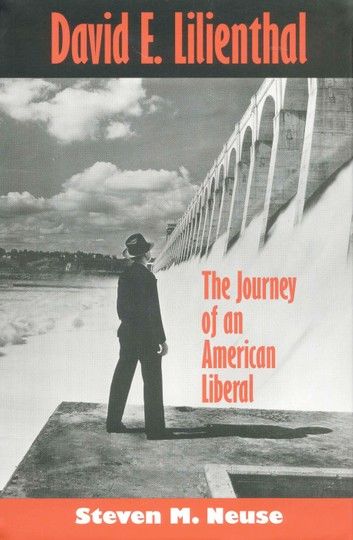| FindBook |
有 1 項符合
David E. Lilienthal: The Journey of an American Liberal的圖書 |
 |
David E. Lilienthal: The Journey of an American Liberal 作者:Steven M. Neuse 出版社:Plunkett Lake Press 出版日期:2018-04-29 語言:英文 |
| 圖書館借閱 |
| 國家圖書館 | 全國圖書書目資訊網 | 國立公共資訊圖書館 | 電子書服務平台 | MetaCat 跨館整合查詢 |
| 臺北市立圖書館 | 新北市立圖書館 | 基隆市公共圖書館 | 桃園市立圖書館 | 新竹縣公共圖書館 |
| 苗栗縣立圖書館 | 臺中市立圖書館 | 彰化縣公共圖書館 | 南投縣文化局 | 雲林縣公共圖書館 |
| 嘉義縣圖書館 | 臺南市立圖書館 | 高雄市立圖書館 | 屏東縣公共圖書館 | 宜蘭縣公共圖書館 |
| 花蓮縣文化局 | 臺東縣文化處 |
|
|
Over the course of a career that stretched from the early 1920s through the late 1970s, David Eli Lilienthal (1899-1981) became a larger-than-life symbol of American liberalism. Born in Morton, Illinois to Jewish immigrants from what later became Czechoslovakia, Lilienthal attended DePauw University and Harvard Law School. After practicing labor and public utility law in Chicago, Governor Philip La Follette appointed him to the Wisconsin Public Service Commission in 1931. In 1933, President Roosevelt appointed Lilienthal as one of three founding directors of the Tennessee Valley Authority. In 1946, President Truman appointed him as the first chairman of the Atomic Energy Commission. Lilienthal left public service in 1950 but continued applying the TVA concept of coordinated development, including dams, irrigation, flood control and electric generation via his consulting firm, Development and Research Corporation, which operated internationally, including in Iran under the Shah.
“This biography is a study of a fascinating man who, in his long career, embodied the achievements and tragedy of mid-century American liberalism. The author has mastered his sources and produced a wonderful portrait of a man and his times.” — Erwin C. Hargrove, Vanderbilt University
“Steven Neuse’s biography of David Lilienthal fills an important gap in the history of twentieth-century American liberalism. It is a perceptive analysis of a complex character.” — William Bruce Wheeler, University of Tennessee
“[A] well-written, exhaustively researched, and balanced perspective of [Lilienthal]... Steven Neuse has written one of the best studies to date on a prominent twentieth-century American and one that will be cited for many years to come.” — Michael V. Namorato, University of Mississippi, Journal of American History
“In this exemplary biography, [Neuse] illuminates Lilienthal’s road to influence... This book merits the attention of all serious students of 20th-century American democracy.” — M. J. Birkner, Gettysburg College, Choice
“Neuse offers a superbly crafted discussion of Lilienthal’s time as TVA commissioner... [and] traces the evolving controversies and achievements of TVA with exemplary clarity... [A] wise and wide ranging book. Based on an enviable command of private papers, personal interviews, and government documents, it is incomparably the finest existing study of this complicated and remarkable American and of absorbing interest to anyone interested in the New Deal, atomic politics, or the travails of American liberalism at home and abroad in the late twentieth century.” — Georgia Historical Quarterly
“[A] splendidly perceptive analysis of this consummate bureaucratic politician and liberal who managed constructive programs in a destructive world.” — Journal of East Tennessee History
“[A] quite readable biography based on enormous research... [this] book is important and deserves a wide readership.” — Howard P. Segal, University of Maine, Nature
“Neuse has performed a very important service in providing scholars with a ‘life and times’ chronicle of Lilienthal... Neuse’s account is impressively researched, his prose admirably lucid... Neuse’s study stands as proof that narrative biography is still a vibrant scholarly enterprise.” — Gregory Field, University of Michigan, Technology and Culture
“This is a well-written, extensively documented, informative narrative on a fascinating man...” — John Minton, Western Kentucky University, Tennessee Historical Quarterly
“Steven Neuse’s exhaustive study of David Lilienthal is the much-needed and definitive biography of a highly significant figure, the very personification of American liberalism and grassroots democracy. All twentieth-century scholars must master it, and the general reader will be fascinated by this sensitive tale of a tortured crusader who dreamed so expansively and felt so deeply.” — Roy Talbert, Jr., Coastal Carolina University
|











